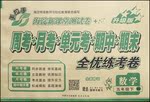题目内容
If you make on close friend in school, you will be most fortunate. A true friend is someone who stays with you for life. 1 teaches that this was right. A good friendship is not easily 2 .
It is possible that we simply do not stay in one place long enough for a 3 friendship to develop. However, there can be 4 disagreement on the need for each of us to think carefully about the kinds of friendships we 5 .
To most of us, 6 are considered very important, but we need to be clear in our 7 the kinds of friendships we want. Are they to be close or 8 at arm’s length? Do we want to 9 ourselves or do we want to walk on the surface? For some people, many friendships on the surface are 10 enough – and that’s all right. But at some point, we need to 11 that our expectations are the same as our friends’ expectations. The sharing of personal experience 12 our tears as well as our dark dreams is the surest way to deepen friendships. But it 13 be undertaken slowly and carried on only if there are 14 of interest and action in return.
What are some of the 15 of friendship? The greatest is the attraction to expect too much too soon. Deep relationships 16 time. Another “major difficulty” is the selfishness to think one “possesses” the other, including his time and attention. Similarly, friendships 17 actions in return. In 18 words, you must give as much as you take. Finally there is a question of taking care of the friendship. Unless you spend 19 time together, talking on the phone, and writing letters, friendships well die 20 .
1.A.Knowledge B.Teachers C.Experience D.Parents
2.A.understood B.formed C.realized D.produced
|
4.A.no B.some C.any D.none
5.A.obtain B.apply C.want D.appeal
6.A.disagreements B.friendships C.expectations D.relationships
7.A.hearts B.thoughts C.actions D.minds
8.A.remained B.left C.stayed D.kept
9.A.own B.owe C.share D.spare
10.A.that B.very C.not D.quite
11.A.make sure B.remember C.expect D.check out
12.A.includes B.to include C.including D.included
13.A.can B.need C.will D.must
14.A.marks B.sights C.scenes D.signs
15.A.difficulties B.differences C.advantages D.things
16.A.cost B.spend C.ask D.take
17.A.require B.request C.depend D.suggest
18.A.some B.many C.other D.different
19.A.enough B.comfortable C.less D.a lot
20.A.for B.away C.out D.from
1—5 CBAAC 6—10 BBDCD 11—15 ACDDA 16—20 DACAB

 手拉手全优练考卷系列答案
手拉手全优练考卷系列答案We’re surrounded by chemistry in everyday life. Sometimes it is easy to see, like when your science teacher does a big experiment in class. At other times, it can be pretty hard to see everyday chemistry at work, but nearly everything you touch or use has some element of chemistry in it.
Something as simple as toothpaste contains at least three chemicals, if not more. It is the mixture of them and its chemical reaction that keeps your teeth clean. Other things you use every day are created by chemistry, such as hair products, shampoo and soap. Adding detergent (洗涤剂) to water involves chemistry. Without chemistry, we would never have known that we need soap to get the oil out of clothes or skin. Chemistry not only helps us make products for use, but it also helps us understand the world around us. Chemistry helps us understand what the ozone layer (臭氧层) is and how it protects us. Chemistry also gives us sunscreen to protect us from the sun. Thanks to chemistry, we know bleach (漂白剂) can’t be mixed with vinegar(醋), because it can produce poisonous gas.Without chemistry, we wouldn’t have fireworks displays on important days.
Chemistry plays a big role in food preparation. Cooking food causes it to go through a chemical change. That is why cooked food often tastes different from raw food. Baking is a great example of chemistry. Too much or too little of any ingredient(成分,尤指烹饪) makes a difference to the result of baking, for example, the dough (面团) won’t rise or the cake will be flat.
Chemistry isn’t something that just lives in a lab; it’s something that you meet hundreds of times every day. Knowing how chemistry works will give you a greater understanding of the science behind some of the simplest-looking things.
【小题1】What’s the main idea of Paragraph 1?
| A.Chemistry is easy to see around us. |
| B.Sometimes chemistry is hard to see around us. |
| C.How a science teacher does a big experiment. |
| D.Few things in everyday life contain chemistry. |
| A.cleaning teeth with toothpaste |
| B.washing hair with hair products |
| C.using soap to get the oil out of clothes |
| D.washing your face with water |
| A.harmful | B.healthy | C.fresh | D.pleasant |
| A.One can’t find chemistry when cooking food. |
| B.Chemistry plays an important part in food mak-ing. |
| C.That dough rises is nothing to do with chemistry. |
| D.A flat cake is the result of too many ingredients. |
| A.Chemistry Around the House |
| B.Chemistry in Science |
| C.Chemistry for Dinner |
| D.Chemistry in everyday life |